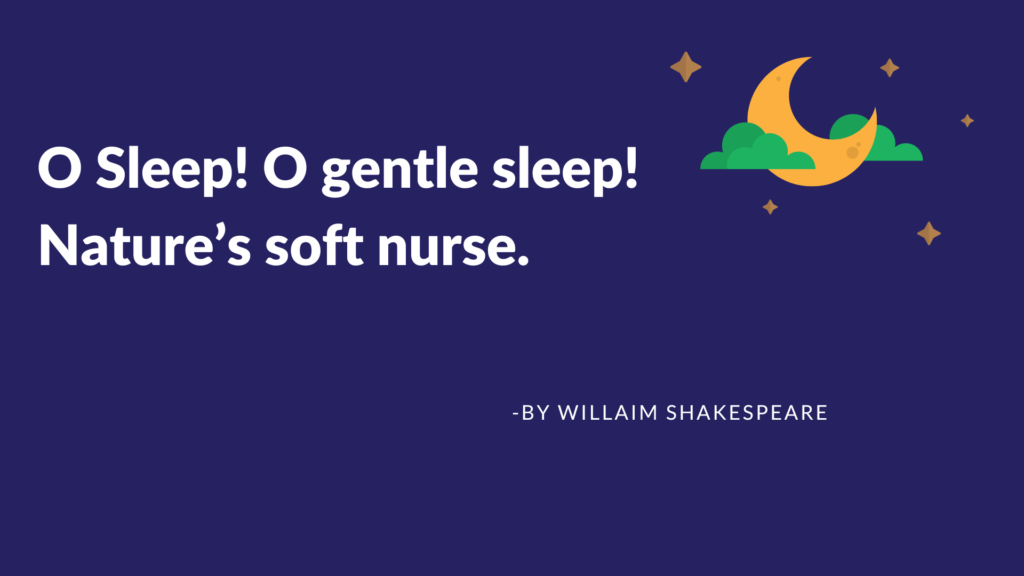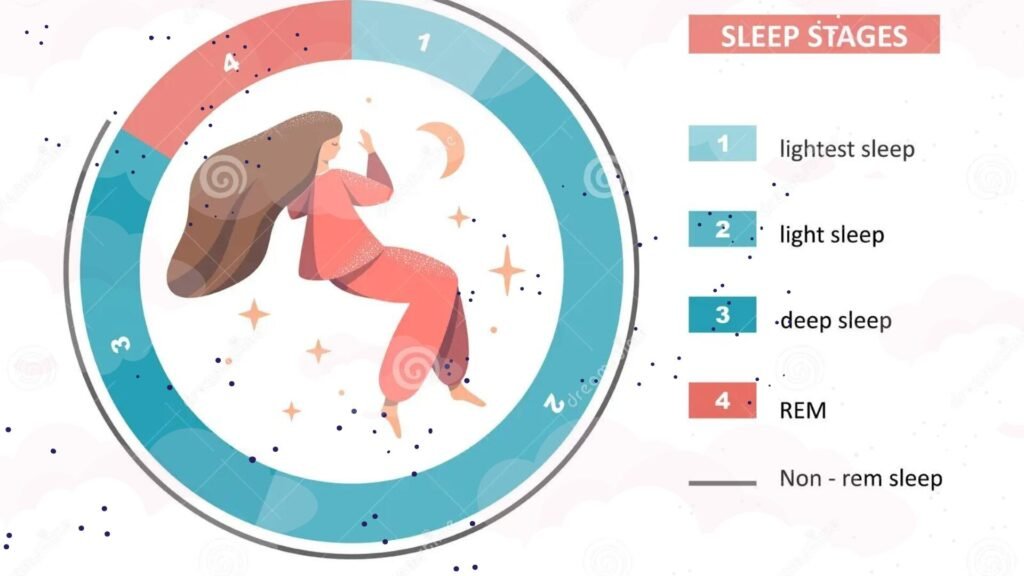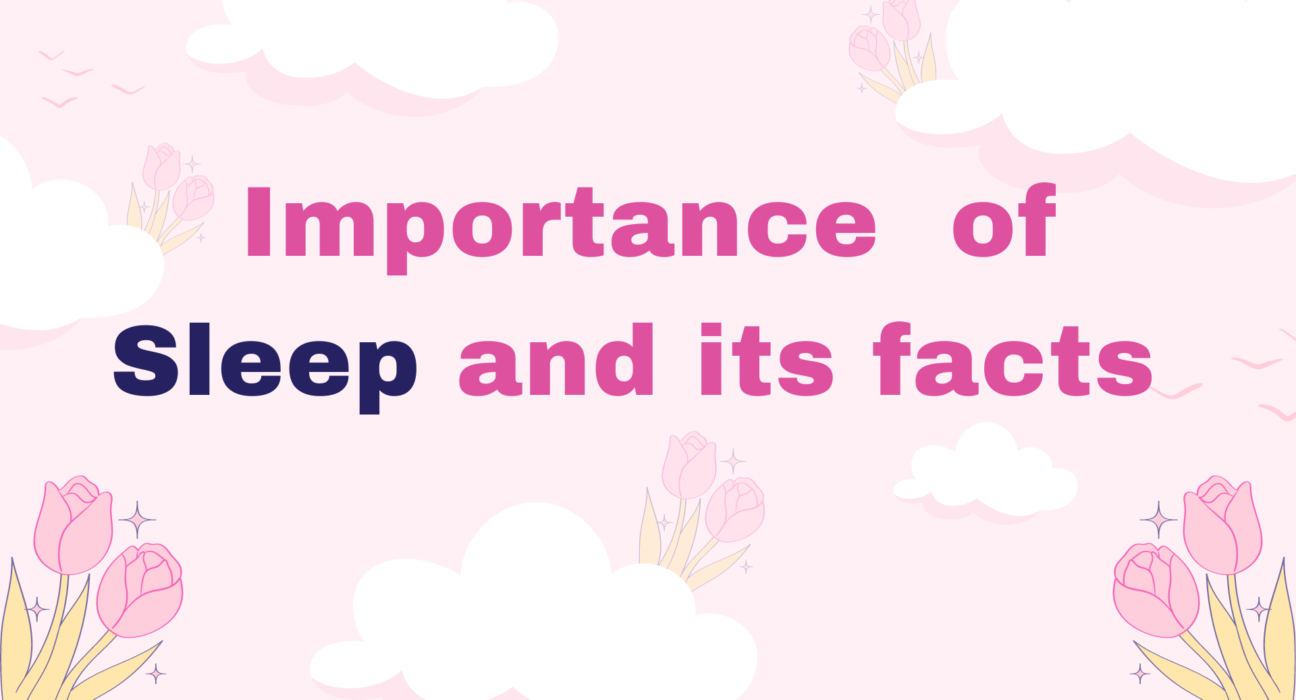What Is Sleep?
Sleep is a normal body process that allows your body and brain to rest. At first glance, sleep is deceptively simple. For most people, it’s just a matter of getting comfortable, closing your eyes, and drifting into slumber. Sleeping is a basic human need, like eating, drinking, and breathing. Like these other needs, sleeping is vital for good health and well-being throughout your lifetime.
Humans may suffer from various sleep disorders, including dyssomnias, such as insomnia, hypersomnia, narcolepsy, and sleep apnea; parasomnias, such as sleepwalking and rapid eye movement sleep behavior disorder; bruxism; and circadian rhythm sleep disorders.

Importance Of Sleep
If you’re not getting enough sleep or your sleep quality isn’t good, you’ll probably know it just from how you feel. Without enough sleep, your body and brain can’t work as they should. Sleep is a fundamental component of a healthy lifestyle, impacting nearly every aspect of physical, mental, and emotional health.
- Physical Health: It helps strengthen the immune system, reducing susceptibility to illnesses.
- Energy and Performance: Quality sleep boosts energy levels, enhances physical performance, and improves daily productivity and alertness.
- Metabolic Health: Sleep affects metabolism and appetite regulation. Poor sleep is linked to weight gain, obesity, and increased risk of diabetes.
- Mental Health: Sleep is an important factor when knowing a person’s mental condition.
- Brain maintenance: While asleep, your brain reorganizes and catalogs memories and learned information. This is like a librarian sorting and shelving books at the end of the day. It makes accessing and using things you learn and remember easier and more efficient.
Facts Never Known About Sleep
- Sleep Deprivation and Cognitive Function: Chronic sleep deprivation can impair cognitive function as severely as being legally drunk. It affects attention, decision-making, and reaction time.
- Dreams and Problem-Solving: Dreams can help with problem-solving and creative thinking. Some studies suggest that dreaming can contribute to insight and solutions to problems encountered during waking hours.
- Sleep and Weight Management: Lack of sleep disrupts hormones that control hunger and appetite, leading to increased cravings for high-calorie foods and a higher risk of weight gain.
- Sleepwalking and Sleep Talking: These behaviors, known as parasomnias, occur during non-REM sleep and are relatively common. They usually happen in the deep stages of sleep and can be triggered by stress or sleep deprivation.
- Temperature Regulation: Sleep helps regulate body temperature. The body’s core temperature drops during sleep, and maintaining a cool sleeping environment can improve sleep quality.
- Sleep Cycles Vary by Age: Infants and children need more sleep than adults, and the sleep patterns of older adults often include more fragmented sleep and less REM sleep.
How Much Sleep Do I Need?
Sleep is variable from person to person. The way that people sleep and how much they need can vary widely. The number of hours of sleep that are good for your health can also change during your lifetime. The amount of sleep needed varies by age and individual factors, but general guidelines recommend the following:
- Infants (0-3 months): 14–17 hours per day.
- Newborns (4-11 months): 12–15 hours per day.
- Toddlers (1-2 years): 11–14 hours per day.
- Preschoolers (3-5 years): 10–13 hours per day.
- School-age children (6-12 years): 9–12 hours per night.
- Teenagers (13–18 years): 8–10 hours per night.
- Adults (18–64 years): 7–9 hours per night
- Older adults (65+ years): 7–8 hours per night.

Factors such as stress, health conditions, lifestyle, and genetics can influence how much sleep a person requires. Listening to your body and adjusting your sleep habits to feel rested and functional during the day is important.
What Is REM Sleep?
Usually, REM sleep happens 90 minutes after you fall asleep. The first period of REM typically lasts 10 minutes. Each of your later REM stages gets longer, and the final one may last up to an hour. Your heart rate and breathing quicken.
Your muscles usually go limp so that you don’t act out your dreams. You can have intense dreams during REM sleep since your brain is more active.
REM is important because it stimulates the areas of your brain that help with learning and memory. During this stage, your brain repairs itself and processes emotional experiences. It also transfers short-term memories into long-term memories.
Tips To Get Better Sleep.
Sleep is the single most effective thing we can do to reset our brain and body health each day.
- Try not to consume caffeine in the late evening, caffeine consumption reduced total sleep time by 45 minutes and overall sleep efficiency by 7%.
- Have a regular sleep routine instead of having irregular naps and sleeps which is bad for one’s health, can cause serious issues in old age.
- It is very important to have a comfortable mattress and pillow. Invest your money in this so that you get to have better sleep, which results in better productivity.
- Relax and a clear mind are important despite having a good mattress, try out meditation, and yoga poses that could give a sense of relief from your stress.
- Music, according to research, shows that it greatly helps an individual to fall asleep. Classical music tends to reduce blood pressure, usually the quiet ones. Even music that is to your liking can also help.
- Daily exercise has many benefits for health, and the changes it initiates in energy use and body temperature can promote solid sleep. Most experts advise against intense exercise close to bedtime because it may hinder your body’s ability to effectively settle down before sleep.
- Be Mindful of Alcohol in the Hour Before Bedtime, Alcohol can induce drowsiness, so some people are keen on a nightcap before bed. Unfortunately, alcohol affects the brain in ways that can lower sleep quality, making it best to avoid alcohol in the lead-up to bedtime.
Sleep Deprivation And Its Effect.
Sleep deprivation significantly impacts both physical and mental health. Physically, it weakens the immune system, making one more susceptible to illnesses, and increases the risk of chronic diseases such as hypertension, heart disease, and diabetes. Hormonal imbalances caused by lack of sleep can lead to weight gain and metabolic issues, while reduced physical performance impairs endurance and coordination. Mentally, sleep deprivation impairs cognitive functions, affecting concentration, memory, and decision-making abilities. It also contributes to mood disturbances, irritability, and a higher risk of mood disorders like depression and anxiety.
Behavioral consequences include increased risk-taking and strained relationships due to irritability. Long-term effects can be severe, potentially increasing the risk of neurodegenerative diseases and reducing overall lifespan. Prioritizing good sleep hygiene and seeking medical advice when necessary are crucial for mitigating these effects and maintaining overall health.
Conclusion
Sleep is important for every individual to perform in an optimum condition. The less sleep, the less productivity. To have that refreshing feel and to see the daily activities with the eyes calm and composure, one needs sleep. What is the use of having so many luxuries but not being able to sleep? A person who can have a great sleep is the one who is the richest of all. Have a great sleep, everyone.
“A good laugh and good sleep are the best cures in a doctor’s book.”
For More Such Blogs, Visit Woocur
Thank You.






